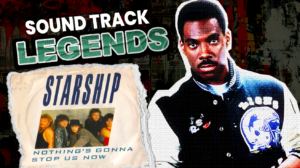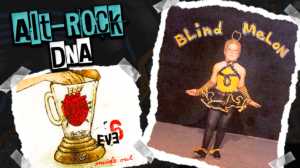
Divorced Dad Rock cuts through the noise of curated playlists to deliver something real: songs that understand life’s messier chapters. You know these tracks—they’re the ones that show up when algorithms finally stop trying to cheer you up and start reflecting where you are. These artists master turning personal wreckage into anthems that resonate beyond their original context. They’ve created a soundtrack for anyone who’s discovered that growing up sometimes means watching things fall apart, then finding the strength to rebuild. The bands below prove that vulnerability and volume can coexist beautifully.
13. Creed
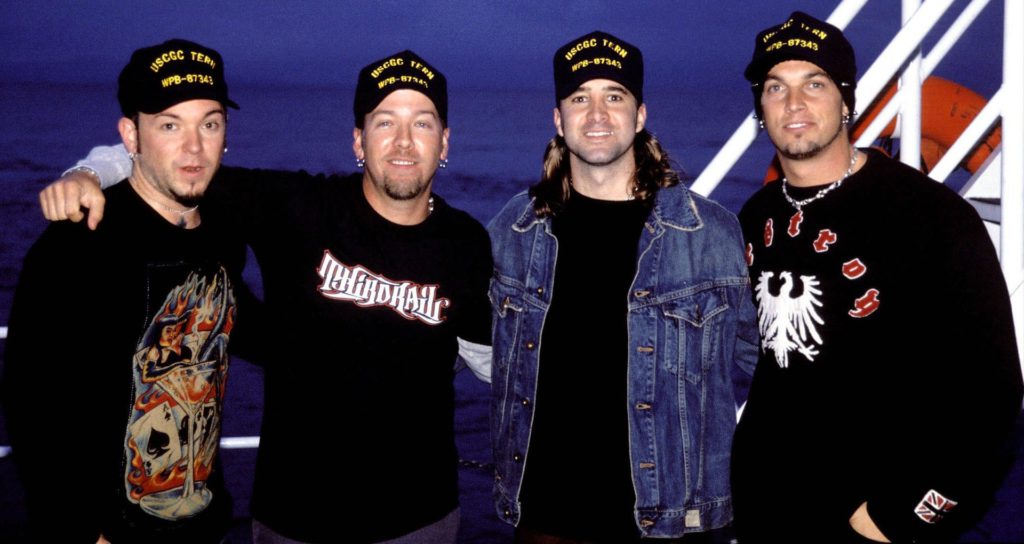
Nostalgia drives Creed’s comeback tours, drawing fans seeking a connection to simpler times. Divorced dads drive impressive distances, navigating rush hour traffic and life’s disappointments to relive youth through music that once defined their optimism. Crowds sing along with every word to “With Arms Wide Open,” a song that hits differently when you’re seeing kids every other weekend.
Hardship makes these men need exactly what Creed provides—melodramatic guitar solos and Scott Stapp‘s earnest vocals offering emotional comfort food. Their music creates temporary sanctuaries where problems dissolve into power chords and communal singing—a sonic time machine that transports listeners to moments when the future held infinite possibility.
12. Foo Fighters
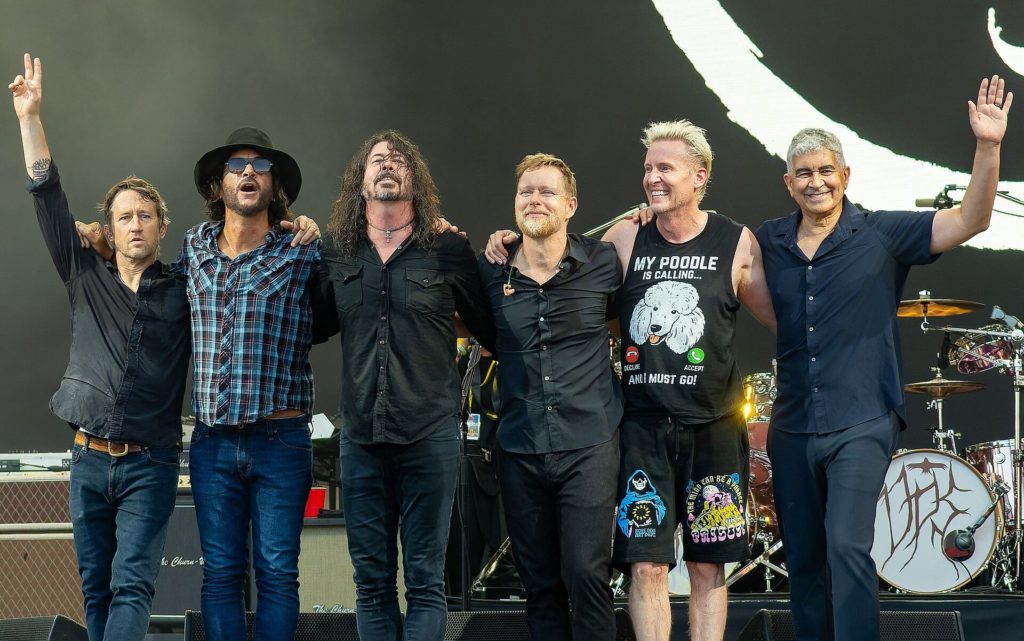
Companionship arrives daily through Foo Fighters for divorced dads navigating new routines. Morning commutes with “The Pretender” blasting provide necessary armor for facing workdays where nobody knows personal struggles. Afternoon soundtracks of “Times Like These” remind them to persevere through paperwork and court dates.
Weekend visits with kids benefit from gentler songs like “Everlong,” offering needed perspective about what truly matters. Dave Grohl‘s journey from drummer to frontman mirrors the reinvention many find themselves undertaking after divorce. Their music serves as a compass during uncertain times, pointing toward resilience when life’s map has been completely redrawn.
11. Seether
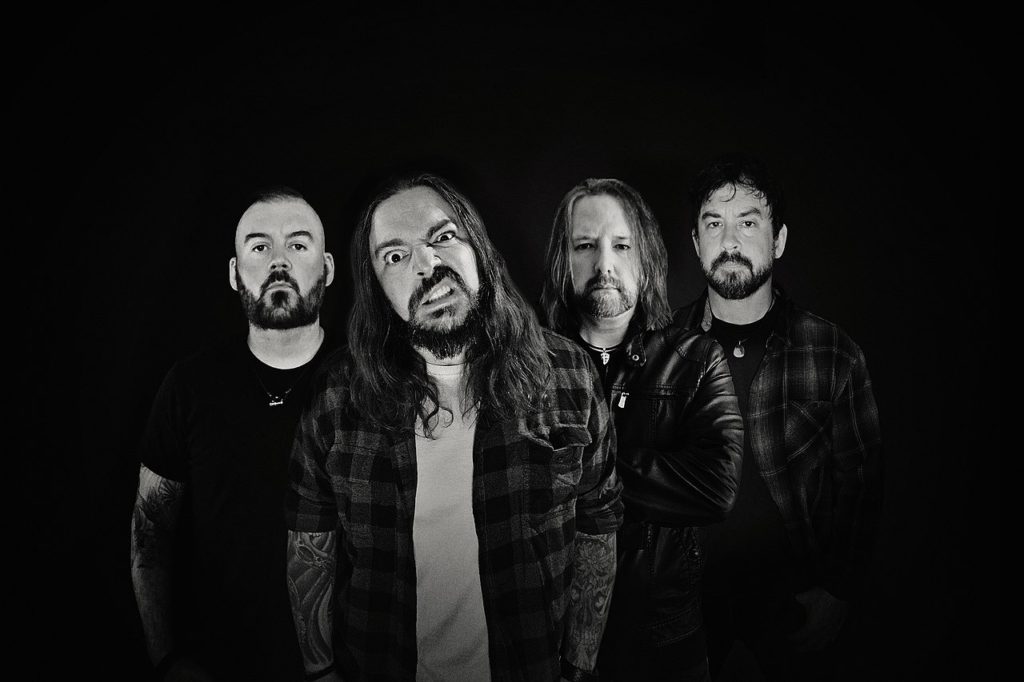
Misery becomes danceable through Seether‘s craft—music that fills empty house silence while providing the mental focus needed to assemble IKEA furniture alone. Their low, rumbling riffs and introspective lyrics speak directly to men nursing beers at neighborhood bars on Thursday nights, and the band thrives in these spaces like moss on emotional turmoil’s north side.
Escape arrives when life gets hard, creating a temporary shelter from alimony calculations and custody calendars. Some fans even use Seether songs as ringtones—the musical equivalent of wearing battle scars as conversation starters. When “Broken” plays through car speakers during weekly kid handoffs, it’s not background noise—it’s acknowledgment.
10. Theory of a Deadman
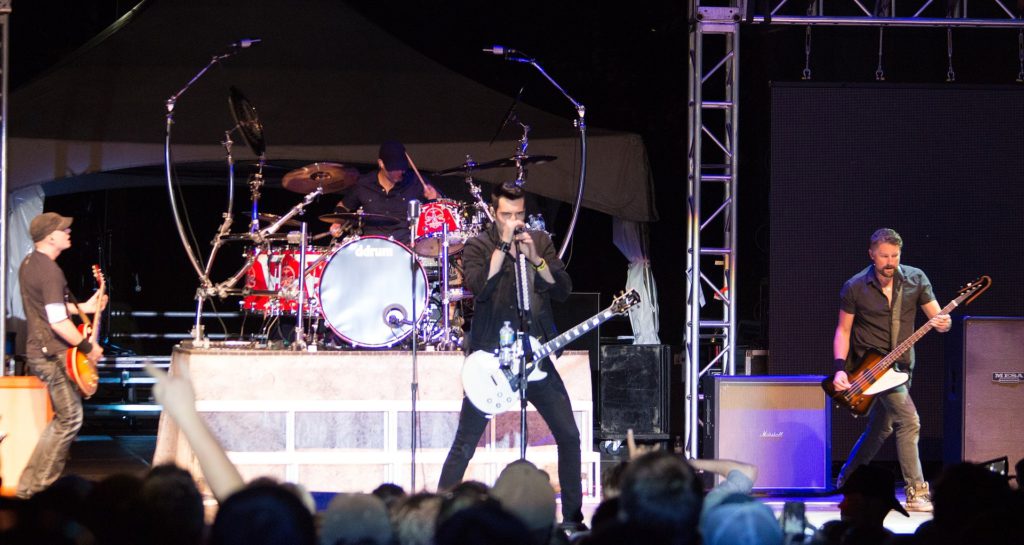
Exorcism happens at Theory of a Deadman concerts, where men gather ready to unleash years of pent-up frustration through collective shouting. Songs like “Bad Girlfriend” and “Medicate” speak to accumulated grievances with therapist precision at $200-an-hour rates. Fans sing along with closed eyes and open veins, finding release in each bitter lyric.
Perfection comes in their bitterness that resonates like tuning forks with those who’ve watched relationships disintegrate. Their appeal stems partly from a willingness to tap into dark memories many prefer keeping locked in storage units alongside wedding albums and joint tax returns.
9. Guns N’ Roses
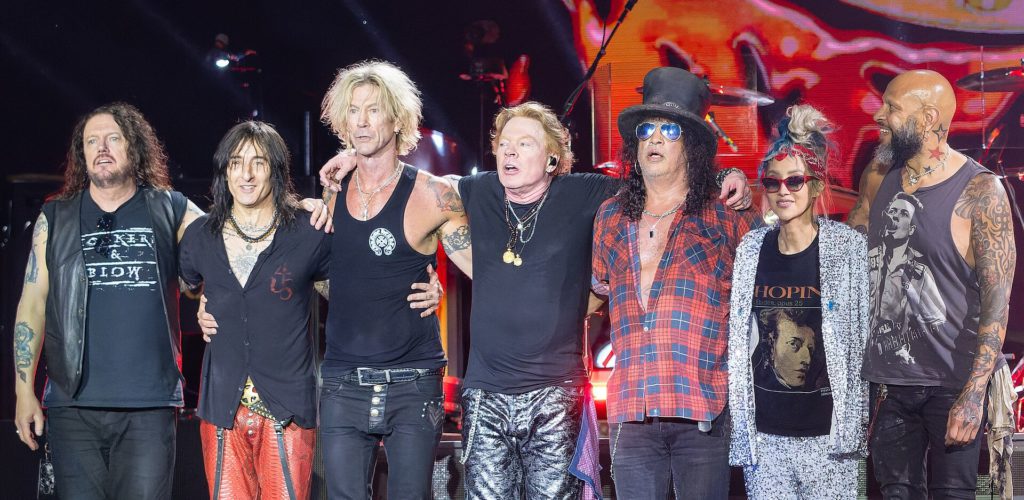
Leather and bandanas wrap the catharsis that Guns N’ Roses offers, though not traditionally categorized as Divorced Dad Rock. Their music resonates with this demographic through Slash‘s iconic guitar work and lyrics processing complex emotions. Devoted fans allocate significant portions of dwindling savings to festival tickets—a testament to music’s power as an emotional investment.
Processing difficult emotions becomes possible through songs like the simmering “Patience” and explosive “Welcome to the Jungle.” The music carries men through tough times like vintage motorcycles—not always reliable, occasionally dangerous, but providing freedom when the open road is the only therapy that makes sense.
8. Three Doors Down

Simplicity defines Three Doors Down‘s approach through accessible lyrics and guitar riffs requiring minimal emotional investment—perfect for those whose emotional bandwidth is already thin. Their fans wear concert shirts from decades past, faded like memories of relationships that once seemed permanent. Their music provides nostalgic comfort without demanding much from listeners juggling dating profiles and parent-teacher conferences…. Familiarity represents their sound’s comfortable presence—perhaps not exciting, but reliably present, like chain restaurants you visit when cooking for one feels too depressing. “Kryptonite” still hits with surprising emotional accuracy when you feel particularly vulnerable to past attachments.
7. Limp Bizkit

Teenagers once fueled by Limp Bizkit’s nu-metal aggression and baggy jeans are now divorced dads finding new meaning in old anthems. Songs about breaking stuff, channel midlife frustrations about broken promises and divided assets. The music helps older fans reconnect with youthful energy when responsibilities threaten to extinguish their inner fire.
Recovery takes longer these days—mosh pits move slower, and knees require more time to heal. Yet the emotional release remains vital. Fred Durst‘s lyrics about betrayal and disillusionment land differently at 45 than at 15—less adolescent rebellion, more hard-earned wisdom.
6. Nickelback
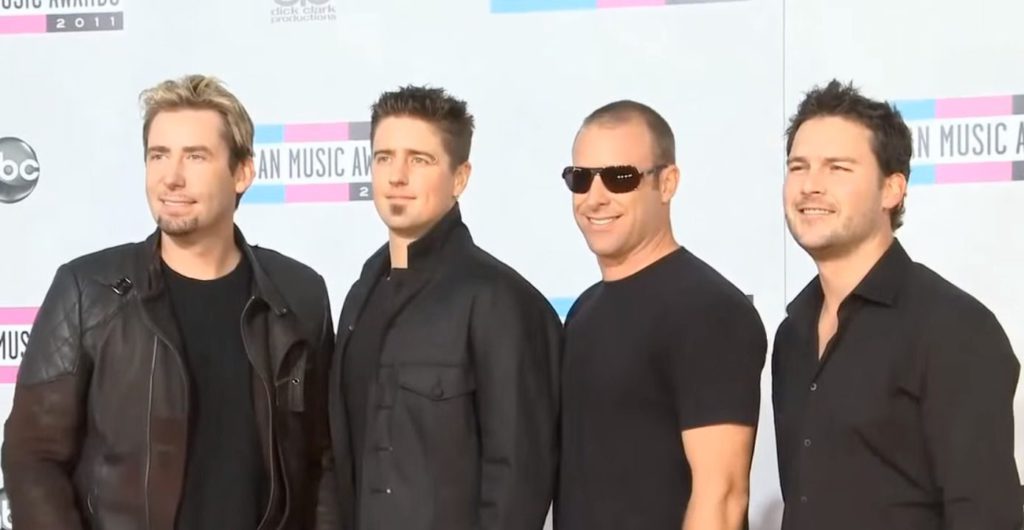
Canada’s most ridiculed export doubles as emotional armor for countless divorced dads. While music critics crafted takedowns, Nickelback frontman Chad Kroeger wrote lyrics that feel pulled directly from glove compartment journals. At their concerts, middle-aged men transform into a choir of shared experience, belting every word to “How You Remind Me” with lived conviction.
Reliability matters when everything else feels uncertain. As musical landscapes shifted toward electronic production and bedroom pop, Nickelback remained steadfast, like that reliable friend who shows up with a six-pack when everyone else is suddenly “too busy” to return calls.
5. Coldplay
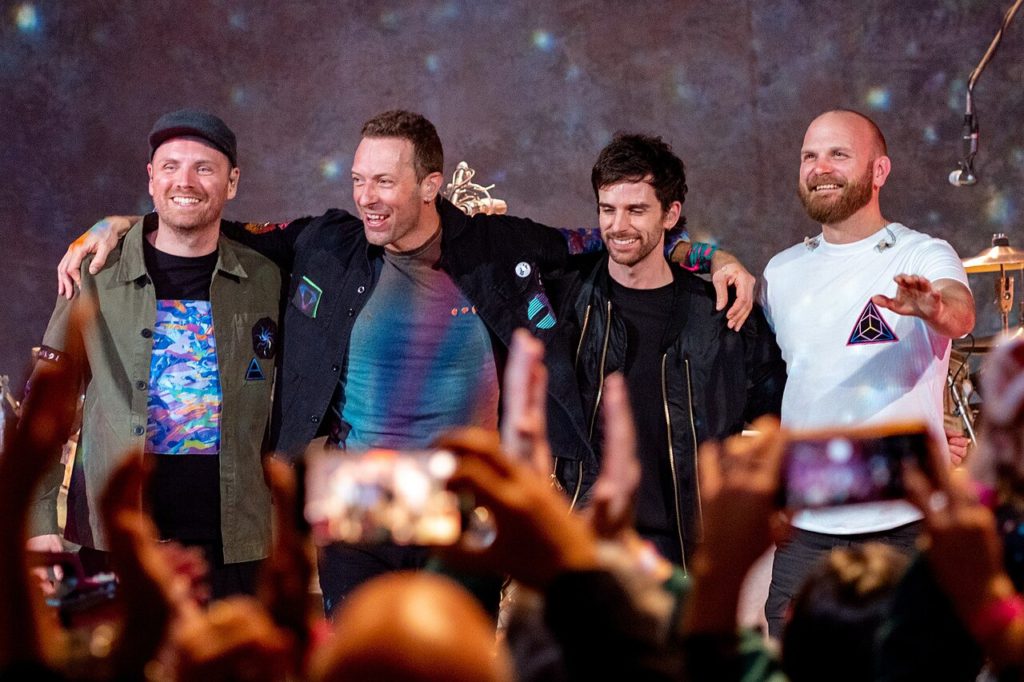
Watercolor washes replace jagged lines in Coldplay‘s different flavor of emotional support, introspection instead of rage. Some divorced dads seek melancholy over anger, finding comfort in Chris Martin‘s falsetto and atmospheric arrangements. Their songs whisper hope amid heartbreak, creating sonic spaces for processing complex emotions.
Reflection becomes possible through gentler melodies that provide room for nuanced thinking about what went wrong and what might still go right. Coldplay reminds listeners that beauty can emerge from life’s darkest chapters, offering the musical equivalent of Instagram quotes about growth and healing—except with better production values and fewer hashtags.
4. Three Days Grace
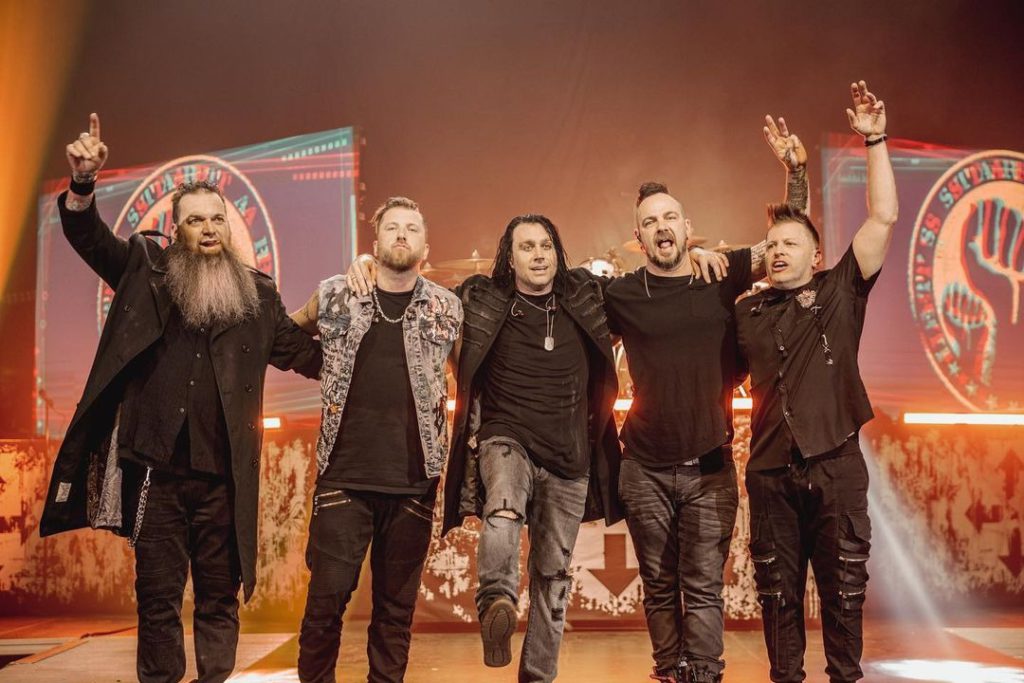
Angst found its voice through Three Days Grace in 2003, when Adam Gontier‘s distinctive vocals captured youthful rebellion before Matt Walst stepped in to carry the torch forward. Their concerts witness a peculiar phenomenon: dads who normally debate lawn fertilizer merits suddenly rushing barricades, transported back to personal battlegrounds through music.
Explaining difficult emotions becomes easier when both vocalists helped create safe spaces for connection—a skill particularly valuable when telling kids why there are now two Christmases. Their cover of “You Don’t Get Me High Anymore” resonates differently when you’re newly single at 43, making them accidental architects of post-divorce soundtracks.
3. Five Finger Death Punch
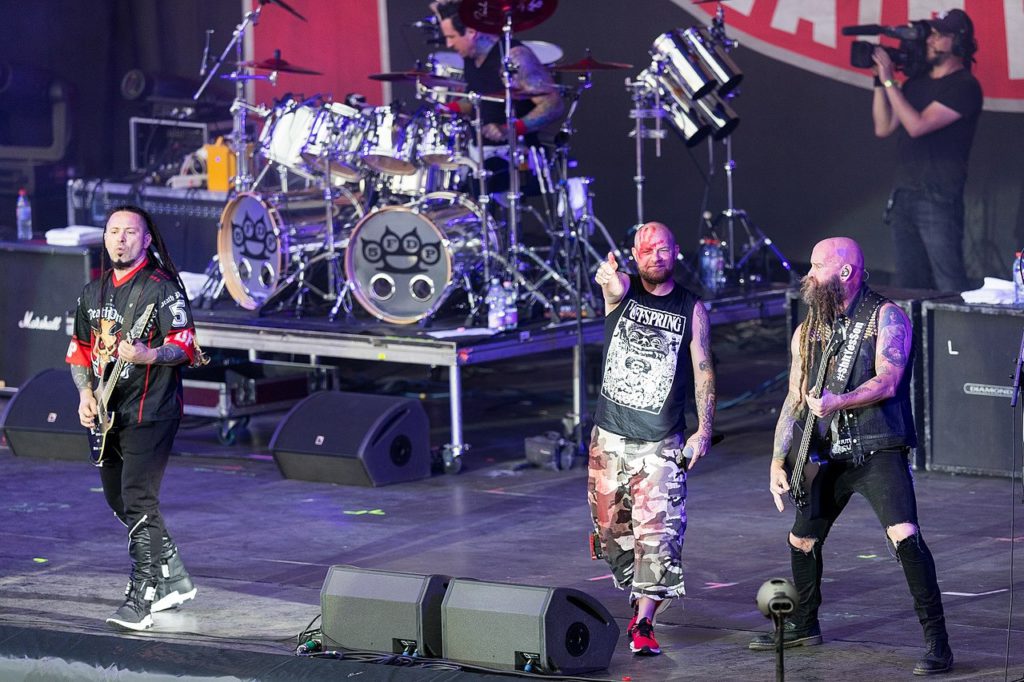
Aggression channels productively through Five Finger Death Punch’s connection with divorced dads via straightforward lyrics and crushing riffs. Their concerts are filled with middle-aged men in black t-shirts, finding community in collective emotional expression that might otherwise remain bottled behind professional facades and weekend dad personas.
Consistency marks their audience relationship, serving fans with remarkable dedication. Their “Bad Company” cover has soundtracked more midlife crises than sports cars and dating apps, providing outlets for emotions that society often expects men to process silently and alone.
2. Shinedown

Brent Smith‘s booming vocals deliver sonic solace wrapped in soaring melodies that could fill stadiums but somehow feel personally directed. Their catalog pulses with raw power, occasionally erupting into gritty anthems that give voice to emotions too complex for casual conversation. Listeners unleash years of bottled frustrations in three-minute bursts.
Refuge comes through unflinching honesty for divorced dads seeking outlets that won’t involve regrettable text messages or impulsive purchases. Their concerts transform into collective therapy sessions where strangers united by life’s complications scream along to “Second Chance” like their emotional wellbeing depends on it—because sometimes, it does.
1. Staind
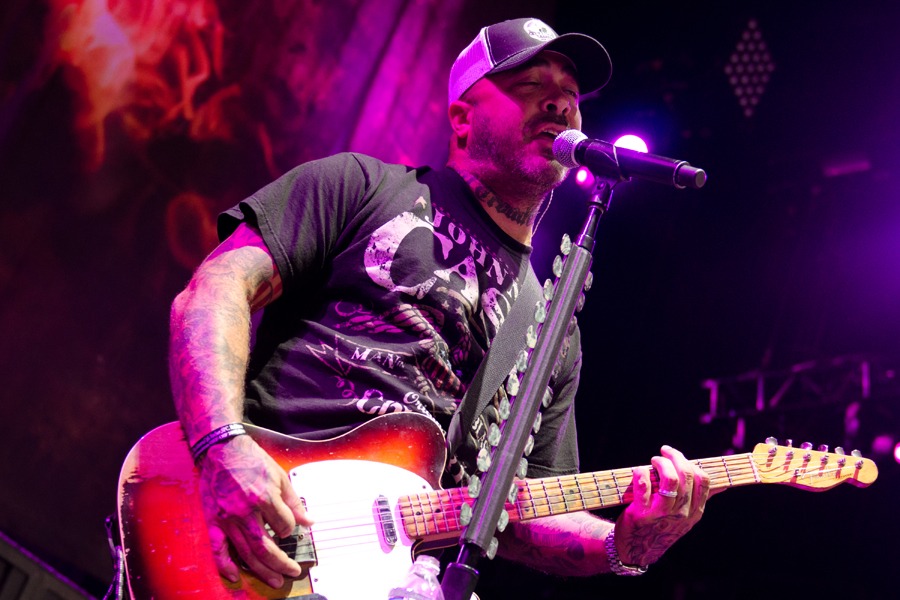
Evolution defines Staind‘s journey from nu-metal angst to acoustic-tinged introspection, mirroring many divorced dads’ paths from rage to reluctant acceptance. Aaron Lewis transformed into the quintessential 40-something man processing disappointment through downtuned guitars. Their musical trajectory—from “Mudshovel’s” raw aggression to “It’s Been Awhile’s” vulnerable reflection—charts familiar emotional territory.
Loyalty sustains despite critical mockery, with devoted listeners understanding that sometimes musical sophistication matters less than emotional authenticity. Staind occupies a specific niche in the emotional ecosystem—like that one friend who doesn’t offer advice but just nods and says, “That sucks, man.”




